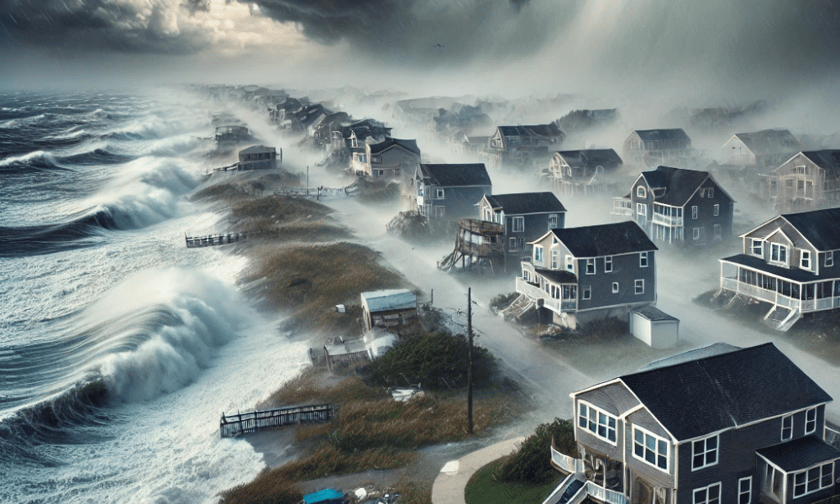

Preliminary figures for the first three quarters of 2024 show global economic losses from natural catastrophes at $280 billion, with insured losses reaching $108 billion, according to Gallagher Re.
While overall losses remain slightly below the recent 10-year average of $309 billion, insured losses have exceeded the decadal average of $102 billion by 5%, primarily driven by a higher frequency of low-to-mid-size events with losses of $2 billion or less.
In its report, Gallagher Re notes that much of the insured losses have been attributed to "non-peak" perils such as thunderstorms, floods, and wildfires, which have accounted for 68% of overall economic losses and 76% of insured losses. These events, especially in regions with higher insurance penetration, have contributed significantly to the overall loss figures.
The economic cost of weather and climate-related disasters, excluding earthquakes and other non-atmospheric events, reached at least $264 billion for the first three quarters of 2024, according to Gallagher Re.
This marks the ninth consecutive year with weather and climate-related economic losses exceeding $200 billion. Insurers covered $103 billion of these losses, a figure that was 4% higher than the decadal average.
As the year progresses, attention has shifted to the Atlantic hurricane season, which has been less active than initially forecast but has already seen five hurricane landfalls in the US. Gallagher Re’s collaborative partner, Colorado State University, expects favorable conditions to persist through November.
The insurance industry continues to adapt to a rise in natural hazard events occurring in non-traditional markets, with climate change playing a more prominent role in individual events.
Gallagher Re reports that 2024 is on track to become the warmest year on record, with global land and ocean temperatures for the first nine months being the highest ever recorded. This trend of rising temperatures has further implications for the frequency and severity of natural disasters.
Gallagher Re’s preliminary estimates show that at least 13 events in 2024 have resulted in economic losses exceeding $5 billion, including five that surpassed $10 billion. Some of the most significant events include Hurricane Helene in the US, China’s seasonal floods, Storm Boris (Anett) in Europe, and Typhoon Yagi in Asia.
In total, there were 51 individual billion-dollar economic loss events by the end of September, compared to a decadal average of 45 such events.
The report highlights that most of these losses were driven by flooding, tropical cyclones, and severe convective storms (SCS), which together accounted for 85% of global economic losses in 2024. Flood-related losses alone amounted to $87 billion, 19% higher than the decadal average of $73 billion. Tropical cyclones and SCS each contributed 27% of total economic losses.
Regionally, the US accounted for $128 billion, or 46%, of global economic disaster costs. According to Gallagher Re, these losses were driven by SCS, tropical cyclones, floods, and droughts, with further loss developments expected later in the year. Asia recorded $73 billion, or 26%, of economic disaster costs, which was lower than average.
Other regions with above-average losses included the Rest of North America (excluding the US and Mexico) and the Middle East. Conversely, Europe, Latin America, Africa, and Oceania experienced below-average losses for the first three quarters of 2024.
Gallagher Re notes that the third quarter has historically been the most expensive period for natural catastrophes, often contributing 49% of annual economic losses over the past decade. This trend continued into 2024, with several major weather and climate events, including floods and tropical storms, leading to significant losses.
What are your thoughts on this story? Please feel free to share your comments below.
